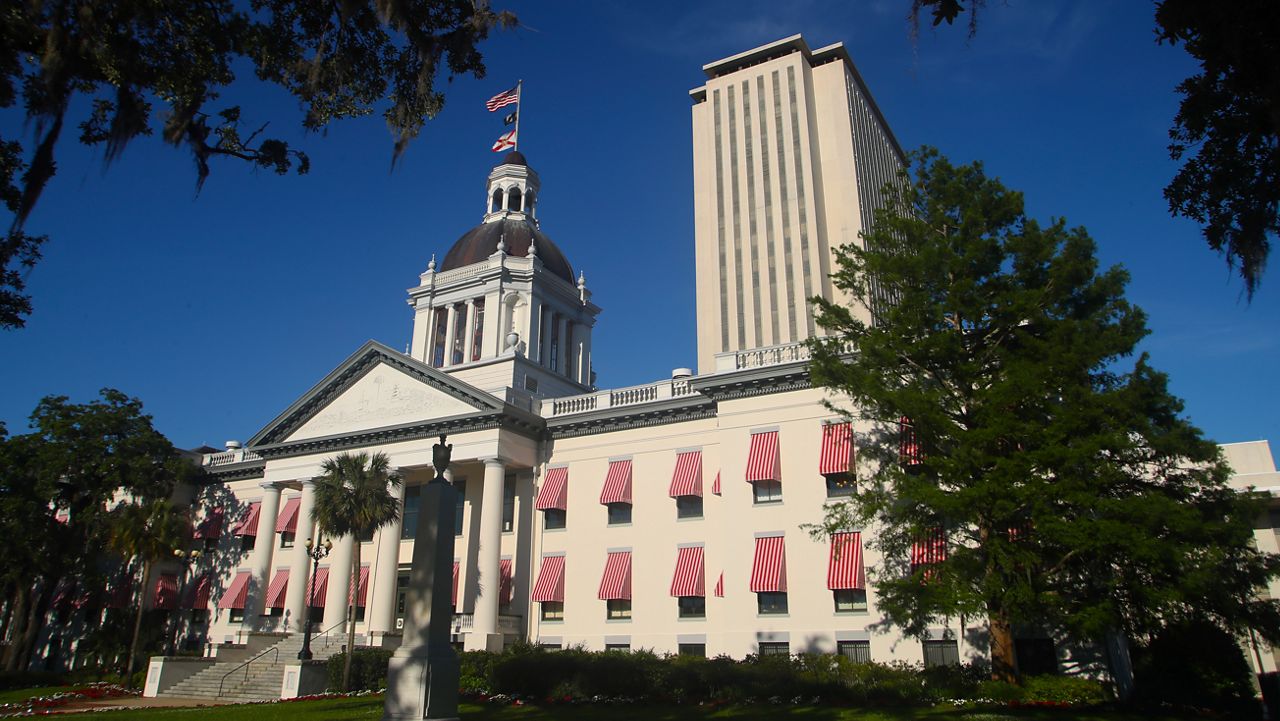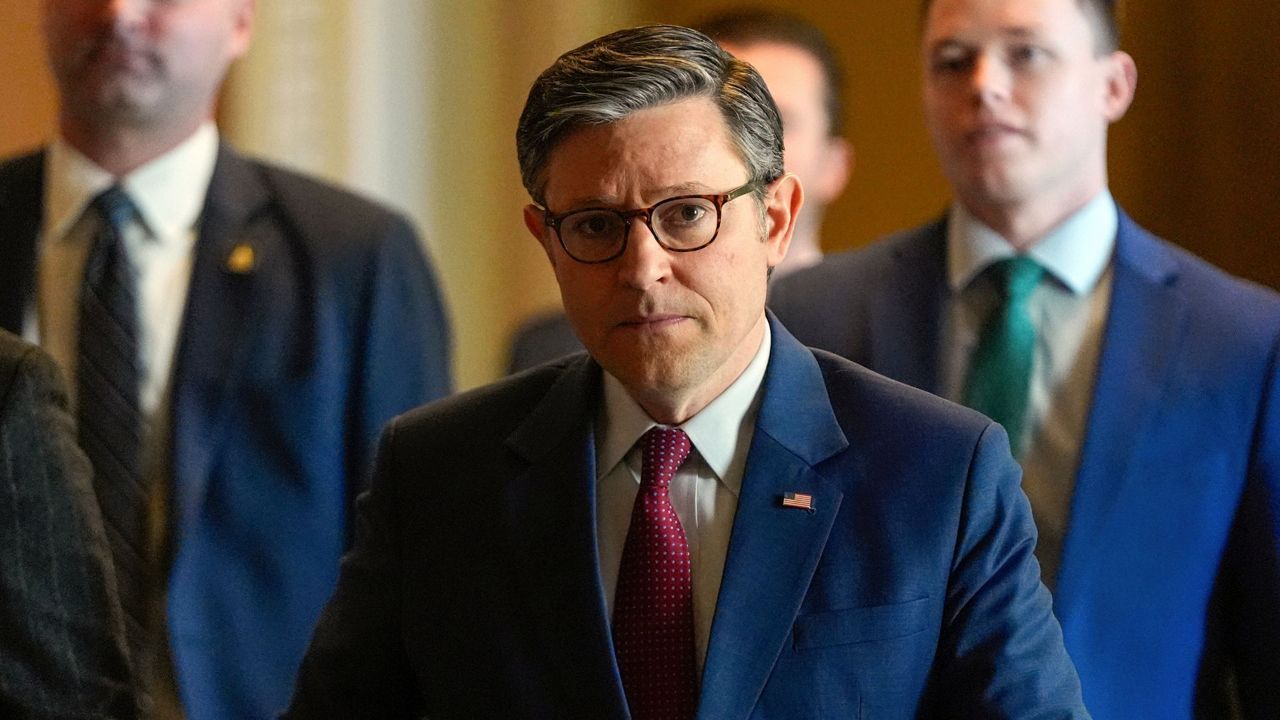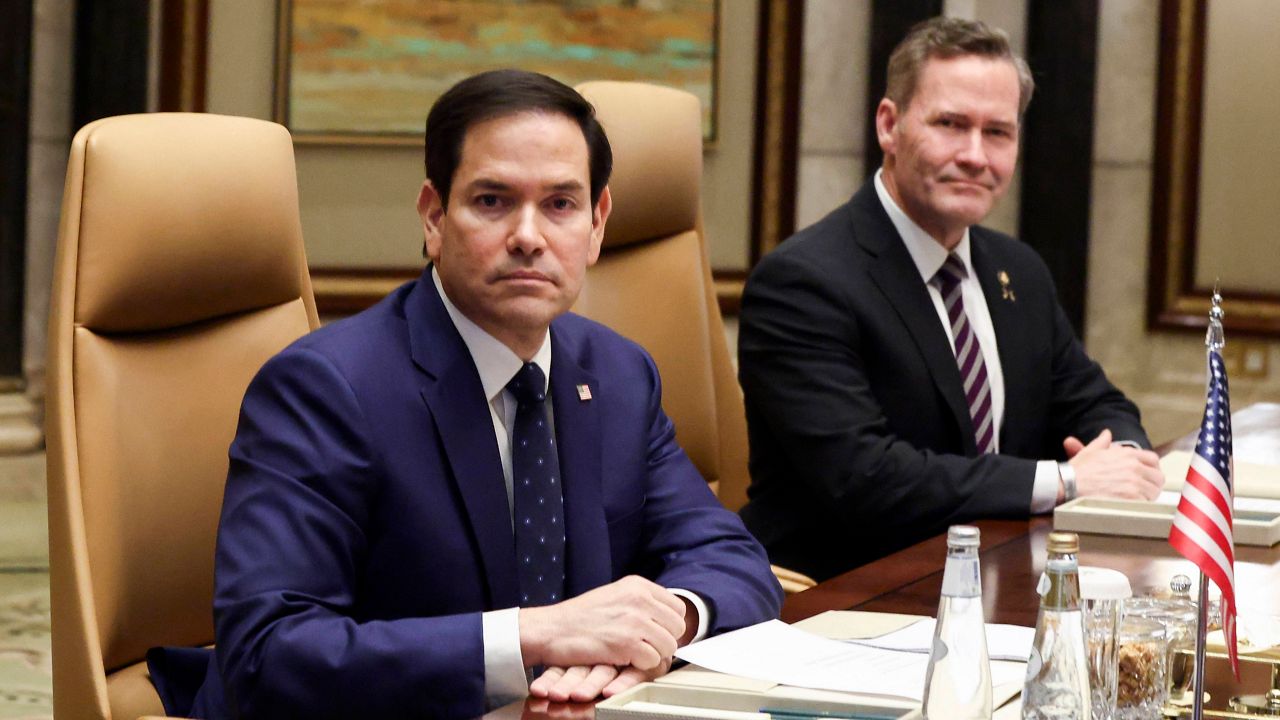Florida Gov. Ron DeSantis threatens to veto the immigration bill passed Tuesday, and the Trump administration rescinds a prior order to freeze federal funding.
'The veto pen is ready:' DeSantis slams immigration bill as weak
A sweeping immigration bill in the Florida Legislature passed in both chambers Tuesday evening, sending the proposal to the governor's desk for a decision.
Gov. Ron DeSantis has voiced his opposition to the bill often, slamming the package for not being strong enough.
"We must have the strongest law in the nation on immigration enforcement. We cannot be weak," the governor wrote on X. "The veto pen is ready."
The House voted to approve the bill, with 82 members voting in support, and 30 voting against the measure.
Republicans in the Florida Senate passed CS/SB 2-B Tuesday evening, with 21 senators voting in support of the measure, and 16 voting against the proposal.
The bill was passed after an amendment filed by State Sen. Joe Gruters was adopted. The amendment redefined the role the Commissioner of Agriculture would have in working with the federal government on immigration questions.
The bill calls for:
- A mandatory death penalty for an undocumented immigrant who is convicted of a capital offense in the state of Florida
- This would include first-degree murder, trafficking large amounts of drugs, armed kidnapping and home invasion
- This would include first-degree murder, trafficking large amounts of drugs, armed kidnapping and home invasion
- Added enforcement, including fines, for public officials who fail to comply with the state law banning sanctuary jurisdiction
- Financial incentives for law enforcement who assist with Immigration and Customs Enforcement task forces
- Eliminating in-state tuition for DACA recipients, something that was passed into law back in 2014
Lawmakers in the Florida Capitol spent most of Tuesday at a near standstill.
The chambers stayed empty until the late afternoon, with the governor and legislative leaders still divided on details.
If DeSantis vetoes the bill, it would go back to legislatures for a second vote. If it wins a two-thirds majority, it would override the governor's vote.
Trump administration rescinds federal funding freeze order
The Trump administration rescinded an order that would have frozen large swaths of federal grant funding on Wednesday after the initial order on Tuesday triggered panic and confusion across the country, and was halted by a federal judge minutes before it was intended to go into effect.
A one-line memo sent out to all federal departments and agencies by Matthew Vaeth, the acting director of the Office of Management and Budget, and obtained by Spectrum News merely rescinded the previous order and did not clarify further whether the administration planned to return to the policy.
Uncertainty over a crucial financial lifeline caused panic and confusion among states, schools and organizations that rely on trillions of dollars from Washington.
U.S. District Judge Loren L. AliKhan blocked the funding freeze Tuesday.
The administrative stay, prompted by a lawsuit brought by nonprofit groups that receive federal money, was set to last until Monday afternoon. Separately, state attorneys general from nearly two dozen states filed a lawsuit of their own.
"Americans fought back, and Donald Trump backed off," Senate Democratic leader Chuck Schumer said when news of the order being rescinded broke on Wednesday. He urged Trump to rescind his nomination of Russ Vought, a Project 2025 architect who Trump has tapped to lead the influential Office of Management and Budget.
Kennedy struggles to answer questions on Medicare and Medicaid at confirmation hearing
In a contentious confirmation hearing to be the nation's top health official, Robert F. Kennedy Jr. struggled to answer questions about how he would reform Medicaid or Medicare, the government health care programs used by millions of disabled, poor and older Americans.
Republican Sen. Bill Cassidy of Louisiana, a physician and key vote Kennedy needs to win, repeatedly pressed the nominee on Wednesday to share ways he plans to reform Medicaid, a multibillion-dollar taxpayer-funded program that covers health care for about 80 million people, including children. Republicans have said they might need to make deep cuts to Medicaid to fund President Donald Trump's proposals.
"I don't have a broad proposal for dismantling the program," Kennedy said.
Kennedy also inaccurately claimed that Medicaid is fully paid for by the federal government — it's not; states and federal taxpayers fund it. He also said most Americans have purchased a Medicare Advantage plan, when only about 1 in 10 Americans have.
His misstatements about the program were peppered in between suggestions that he would seek to push privatization of the programs, repeatedly saying that most Americans like private insurance and that they dislike the government-run versions of the programs.
Kennedy is seeking to lead a $1.7 trillion department of Health and Human Services agency that will oversee vaccine recommendations as well as food inspections, hospital oversight and funding for hundreds of community health clinics.
In sometimes heated exchanges on Wednesday, Kennedy denied that he is anti-vaccine. But Kennedy, who pointed out that his children are vaccinated, acknowledged he has asked "uncomfortable questions" about vaccinations.
"I believe that vaccines play a critical role in health care," Kennedy told the Senate Finance Committee.
Republicans did not ask Kennedy about his vaccine views during the first hour of the hearing.
But Democrats homed in, with Sen. Ron Wyden of Oregon pointing out that Kennedy has previously claimed there's "no safe" vaccine, initiating a back and forth between him and Kennedy. Wyden also quoted from Kennedy's books, which say that parents have been "misled" on the measles vaccine.
"You have spent years pushing conflicting stories about vaccines," Wyden said.
Over many years, Kennedy has been clear about his beliefs on vaccines in dozens of interviews, podcasts and social media posts.
He's headed up a nonprofit that has sued the government over its authorizations of vaccines. He's said there is "no vaccine that is safe and effective" and repeatedly called for further study of routine childhood vaccinations, despite decades of research and real-world use that proves they've safely prevented disease.
Republicans narrowed in on questions about agriculture, food and the abortion pill, which many women access via telehealth.
Kennedy tried to assure senators that he would not seek widespread bans on vaccines or food, saying he wants to provide more information to people.
"I don't want to take food away from anybody," he said. "If you like a cheeseburger — a McDonald's cheeseburger and a diet Coke like my boss — you should be able to get them."











